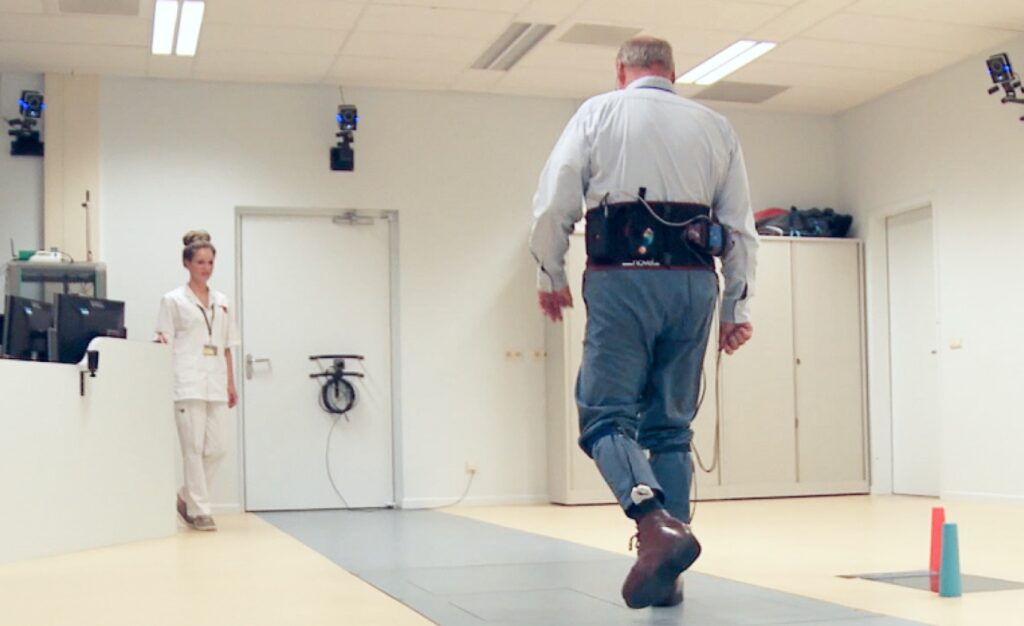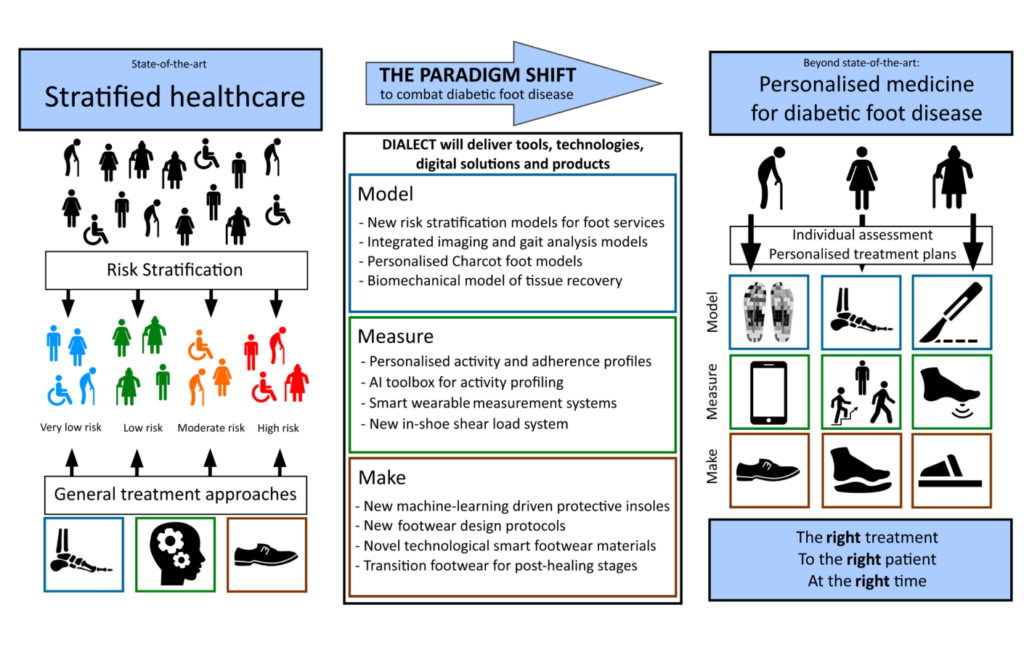In Europe, 59 million people have diabetes (1 out of 11 inhabitants) and this will grow to 1 out of 9 in 2045. Every 20 seconds, someone in the world loses a leg because of diabetes. Almost every amputation is preceded by a foot ulcer, the lifetime prevalence of which is 19-34% in people with diabetes.
Foot ulcers are the leading cause of hospitalisation, reduced mobility, loss of social participation, and lower quality of life; in fact, people with diabetes may fear loss of a limb more than death. The burden of diabetic foot disease is ranked in the top-10 of all medical conditions. Thus, the prevention of foot ulcers and amputations is crucial. While various general treatment approaches are available and recommended (such as foot screening, patient and family education and protective footwear), the success rate of this approach is still too low. The incidence of foot ulcers, in particular ulcer recurrence, remains high: 40% of patients re-ulcerate within 1 year after healing.
These statistics show that we fail to successfully combat diabetic foot disease, as we are not preventing foot ulcers and amputations, and emphasise the urgency and timeliness of DIALECT’s main objective:
To establish an innovative, interdisciplinary and intersectoral research and training effort on diabetic foot disease to deliver the next generation of leading, entrepreneurial, and creative scientists who have the expertise, skills and experience to lead the paradigm shift towards personalised medicine to successfully combat diabetic foot disease and prevent ulcers and amputations.

The reasons we fail to significantly reduce the burden of diabetic foot disease for so many patients and for society at large are knowledge gaps and lack of tools, methods and products to properly identify patients at risk, monitor outcomes, and provide them with personalised, culturally- and gender-appropriate treatments to successfully prevent foot ulcers and amputations. With DIALECT, we aim to change this.
Aims
In diabetic foot disease, we currently lack sufficient success in delivering the right treatment to the right person at the right time to prevent foot ulceration and amputation. In DIALECT, we will provide unique world-class interdisciplinary and intersectoral research and training to a new generation of high-achieving doctoral candidates in the areas of biomechanics, activity behaviour, sensor development, and footwear related to diabetic foot disease.
A well-balanced consortium of academic, industry, healthcare and implementation partners will deliver the carefully designed DIALECT training network, comprising training through research, structured network-wide training events, intersectoral secondments and future work skills training.

DIALECT will result in a paradigm shift towards personalised medicine that goes beyond state-of-the-art (see diagram below), by achieving our aims in developing:
- A new personalised risk stratification
- New biomechanical foot models
- Innovative activity and adherence profiles
- Wearable technology systems for biomechanical and activity monitoring
- Personalised optimised footwear intervention products

DIALECT will provide doctoral candidates with a comprehensive skillset capable of delivering high-quality scientific and industry solutions to develop into leading innovators in the European healthcare sector. After completing their project within DIALECT, doctoral candidates are highly employable and ready to engage and lead the next European generation of scientists-entrepreneurs to expedite progress in reducing the patient, societal and economic burden of diabetic foot disease.


